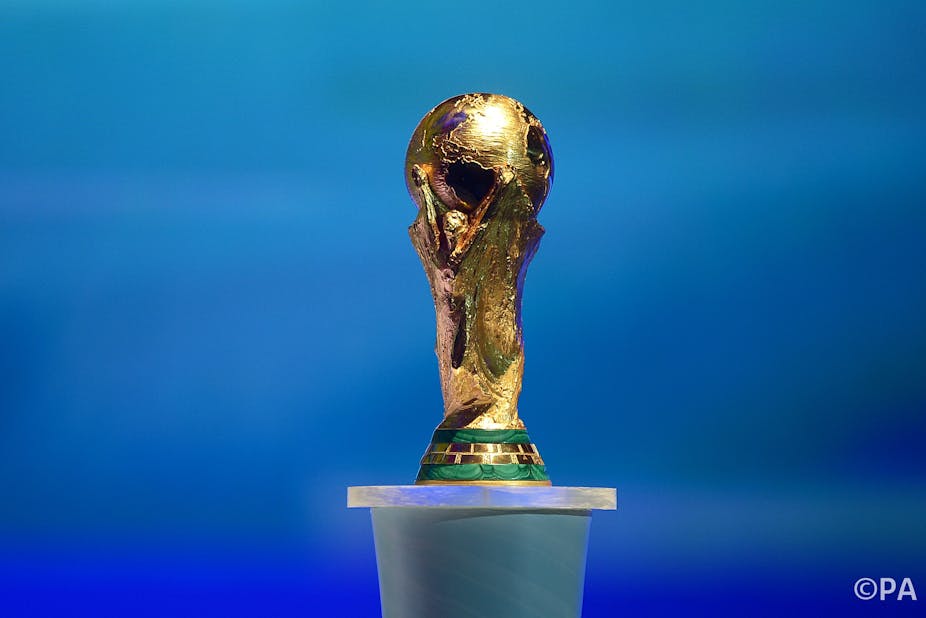In the lead up to the World Cup, there has been speculation across the media that World Cup matches might be fixed, including reports from the UK’s National Crime Agency that a warm-up friendly between Scotland and Nigeria was under suspicion. Amid all the media frenzy it is worth pointing out there is some substance to these fears.
FIFA is certainly taking the threat seriously by implementing the most rigorous security arrangements ever seen at a World Cup. This includes targeting players and referees who they have suspicions about with the presence of security officials at every venue. Players will be given an integrity briefing before the tournament and instructed on the use of a special hotline to report suspicions and approaches. Betting patterns on all games will be monitored by FIFA’s Early Warning System (EWS) that can identify unusual changes in the betting markets.
FIFA is right to assume the World Cup might be a target for fixers, the risks are obvious. During the tournament, nearly all domestic leagues around the globe come to a halt. The World Cup, and the friendlies played in its build up, are by far the most high profile games being played. This means that the gambling market, especially the illegal Asian operators that make up 80% of the global betting market, will be opening up books on the games to satisfy their customers who are being starved of other football matches on which to lay bets. As a consequence the amount of money that these games will attract will be exceptionally high. That is good news for corruptors as they need high liquidity in the market to be able to hide their own large bets and not raise alarm bells.
We may already be past the worst. FIFA has confirmed that the friendly matches that teams play as warm up games are the most vulnerable. These matches have nothing of real value to the teams or countries involved so are more susceptible to manipulation. In the newly published book, Kelong Kings, convicted fixer Wilson Raj Perumal tells how he fixed friendly matches before the 2010 World Cup in South Africa. His fixes sometimes involved bribing players but were often fixed at the level of the team management or national governing body. Perumal also claims to have helped two countries, Honduras and Nigeria, to win World Cup qualifying matches and reach the finals in South Africa. The claims are vigorously denied by the countries themselves.
Who is most likely to take match-fixing bribes? The investigative reporter, Declan Hill, who broke the news of match fixing to an unsuspecting world with his book, The Fix in 2008, has done the most to identify the major players. Hill has shown that it is club officials, owners and managers who are most likely to arrange a fix, as they have the most power over a team. The Italian calciopoli affair of 2006, football’s biggest match fixing scandal, was organised by senior club officials including Juventus managing director Luciano Moggi, who has been banned from football for life and has faced criminal charges for his role in the affair.
But it is not just managers and owners who can fix matches. In 2005 a corrupt referee, Robert Hoyzer, was jailed for two years by a court in Germany. He had been working with a Croatian criminal gang to manipulate matches through dishonest refereeing decisions. Perumal also claims to have had corrupt referees on his payroll. The low wages for match officials make them susceptible. In the World Cup, all referee decisions will be closely monitored by FIFA so it is an unlikely source of a fix in the tournament itself.
If officials and referees can fix matches, what about the players? Perumal says that when organising a fix that he would aim to corrupt the goalkeeper and the central defenders. Fixing matches usually means conceding goals on purpose, so it is natural that it is these players who will be targeted by corruptors.
Declan Hill has taken the analysis further by showing that it is the older player who is most likely to agree to fix a match. This goes against the popular assumption that young players are most vulnerable. Older players have more influence in a dressing room so are able to recruit other players, and they are often the players with the least to lose if they are caught. They may be facing an uncertain financial future as their playing days draw to a close and some have accrued debts through gambling or a lavish lifestyle, all of which makes them vulnerable to approaches to fix a game.
What about the World Cup itself? Can the world’s greatest tournament be fixed? To date there is no evidence that an actual tournament match has been fixed for purposes of betting.
The matches that are most vulnerable are dead rubbers and ones where one team has already gone out of the tournament. Fixers want certainty above all else and also need to avoid being caught. Bribing the weaker team to lose or to concede goals achieves both aims as no-one expects them to do well anyway so it does not raise suspicions. High levels of betting volumes makes those games a prime target for fixers who stand to win a lot of money if they can get a large bet on what will go undetected by the monitoring systems. No-one can guarantee that the cup will be clean but just because there is a threat does not mean that a fix will happen.

